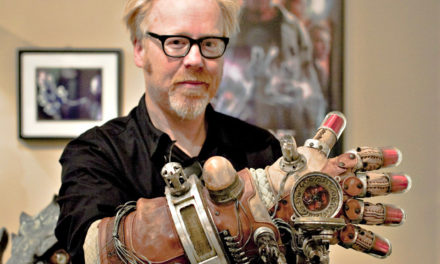Two types of services—proof reading and editing—are the most common and most needed professional services for authors. The two terms are often conflated with each other. The word “editing” is often used as an umbrella term under which proof reading is a sub-type. Here, however, the word “editing” refers to distinct written language processes and goals.
Why Use a Professional Service?
Many authors are highly effective self-editors or self-proof readers. It is a rare author who can draft, edit, and proofread, and still achieve the same quality they would if they took advantage of a professional service. A fresh set of eyes and perspective are necessary to reach a publishing standard of writing. Professional editors and proofreaders are disciplined readers with high levels of language fluency, comprehension, and attention to detail. Your non-professional peers and friends are unlikely to have the close reading skills and decisiveness around language that professional editors and proofreaders do. We have editors and proof readers with expertise in myriad fields of study and publishing. Some of our professionals offer a foreign language component along with proof reading and editing. If English is not your first language, these editors can ensure your original language expression survives translation.
Proof Reading vs. Editing
The simplest way to understand the distinction between proof reading vs. editing is big picture vs. details. The editor cultivates the forest of the written work as a whole. They decide which species of trees should go into which areas of soil and water proximity, and which trees to harvest, for example. The proofreader manages the trees of spelling and grammar. They trim branches, cull saplings, and treat injured trees. Both forest professionals are experts on trees and forests. By analogy, editors and proof readers are both experts in language and writing. As in the example of the managed forest, the difference between proof reading and editing lies in the way the professionals’ expert capacities are applied through distinct processes.
Other Services
Book and poetry authors might also need a different type of writing support in the form of professional critique. While an editor might suggest adding evidence or citations, or correct some logical inconsistencies, a critic addresses the more niche facets of artistic writing. Critique is an entirely different type of reading and feedback process from proof reading or editing. The most comprehensive process for a poem or book manuscript would include a professional critique, a self-revision, a professional edit, and a final professional proofread.
Author Self-Assessment
To begin determining what services to invest in, you should have an opinion on the quality of your own writing. If you are new to your field or style guide, an investment in professional editing services on one or two early documents might pay off in dividends by elevating your future writing more quickly. Before deciding between proof reading vs editing or other services, you should also understand the details of the available services. Writing professionals vary in the extent of feedback they provide, the extent of content rewriting they will do, and the importance they assign to different types of changes or errors. Ideally, you should communicate with two or more writing professionals, and you should make clear what they want from the process in as much detail as possible.
Before engaging a professional editor or proof reader, an author should ask:
1) Is my writing good? Do I think it needs to be better overall?
2) Is my document basically complete, with an identifiable purpose and fully developed arguments or sequences?
3) Does my document contain visual elements that need to be included in the editor’s assignment?
4) Do I have a style guide or strict citation conventions to follow? Have I written in this field and within these structures before?
5) Does my written English already sound natural, or do I regularly use a thesaurus to vary my vocabulary?
6) Have I written for this audience before?
7) Do I want my professional support to heavily rewrite content in my document, or do I want them to only restructure and suggest content changes?
8) Do I want feedback, and if so, how much detail and communication do I want from my professional support?
Our Services In Detail: Terms and Components
1) Editing
• Structural Edit—changes or suggestions to the outline-level order of the document (sections, chapters, content of introduction and conclusion).
• Sequence—Changes or suggestions to paragraph order within chapters or sections, and changes or suggestions to sentence order within paragraphs.
• Language Usage—changes or suggestions to word choice that better adhere to English language conventions, style guide, and gendered language considerations.
• Tone—changes or suggestions to word choice that consider the document’s audience and better fit the level of formality or field-specific conventions.
• Clarity—changes or suggestions to word choice, sequence, or structure, including eliminating unnecessary words or content, that get your point across more simply or more completely.
• Citation—changes or suggestions to the choice or formatting of your references to other works or individuals, including identifying missing attribution and adherence to academic style guides.
Big Picture: A professional editor will assess your personal statement, thesis, book, or web content as a whole. The comprehensive editing process begins with a determination of your intended audience. This will influence editing decisions about formality and tone. The editor will read to determine whether your writing meets its objective (such as answering a specific question), and whether the evidence, timeline, plot points, or argument are consistent with each other. An editor might reorder paragraphs into a more logical sequence, or reorder the sentences within a paragraph to be more effective. Smooth transitions between paragraphs and between different sections of the document are usually the product of good editing, not good writing.
Facts and Technical: The editor will identify any undefined terms critical to understanding your document, and will suggest corrections. They will tighten up the language by eliminating unnecessary words and improving sentence structures. Crucially for academics, a professional editor will identify points or arguments that lack citation or attribution.
Readability: Ultimately, the changes an editor makes are intended to improve the document’s overall expression and writing quality. This might be as broad as structural editing or as detailed as word choice. Either way, the end goal is greater clarity. The editing process will identify and eliminate any inconsistencies or contradictions in the writing. Your writing might be more impactful if the topics are outlined in a different order, or if the editor rewords paragraphs from passive voice to active voice. Word choice and sentence structure editing will make your writing clearer, especially if natural-seeming English language usage is important. A good professional editor will have an eye for it all.
2) Proof Reading
• Spelling—changes or suggestions to the letters in individual words, including synonyms (where/wear/ware) and contractions.
• Grammar and Syntax—changes or suggestions in individual word usage within sentences that ensure the words are ordered in a way that adheres to English language rules, including subject-verb order and agreement.
Proof reading gets into the nitty-gritty aspects of writing like language consistency and spelling errors your word processor won’t recognize. “There/their/they’re,” and “its/it’s” are common typographical errors that are easy for authors to overlook in their own work. A professional proofreader will go over the finer points of syntax and punctuation in every single sentence. Correct usage of the semicolon stumps even highly proficient native English speakers, and comma errors can be hard to spot without a methodical, practiced eye. Proof reading vs editing is typically less costly, but the process is no less important for a published work. This process is a final step before delivering a polished, crystal clear product for publication.
3) Critique
• Feedback—advice, including opinion, about the overall quality of your writing, strengths and weaknesses; detailed suggestions to improve the content of the thesis, argument, plot, characterization, or other major components of the document.
• Content Rewriting—direct changes to the content of your work to improve the thesis, argument, plot, characterization, or other major components of the document.
A professional critique is a great service for early drafts or partial manuscripts. Characters need to be believable, and dialogue needs to come from discernible voices. The setting needs to feel true to the work as a whole, and its description should immerse the reader. A poem might be more effective in a different meter or voice. Professionals with genre-specific expertise or publishing industry insight can offer constructive, if subjective, feedback to guide major revisions. A written work intended for the traditional publishing industry will be published based on the publisher’s subjective assessment. “Is it good or not?” A professional critique can answer that question and possibly offer a content rewrite.
Who Needs It?
Ideally, a written work goes through both an editing process and a proof reading process. Not every author will have the time or financial resources for both proof reading and editing services, but one is better than neither. Writers on a budget have to prioritize. Our goal is for authors to use the details here to narrow down which service or services will provide the greatest value. Using our Author Self-Assessment questions, any author who is considering engaging editing or proof reading services should be able to determine what they need.
Editing Services Are For:
Authors for whom English is a second language (ESL) need a professional editor, regardless of their field or type of writing. Formal, written English is troublesome even to native English speakers. It is a genuine challenge to write in natural-sounding English while adhering to the contradictions and nuances of written English. Some professional editors also offer foreign language and translation support. Depending on the editor, this might be included as part of the overall edit, or it might be a separate service option.
New book authors can benefit tremendously from both professional proof reading and editing. A full edit is appropriate when the author has a complete or almost-complete manuscript that they intend to publish. This step is not about re-working characterization or revising the plot. Professional editing might suggest structural changes to a book that improve its flow or clarity. The expected language quality for books is difficult to achieve within a seamless structure without professional editing. Traditional publishing, self-publishing, and e-books markets are highly competitive, so it’s worth every effort to make a book perfect.
Academic authors invest a great deal of time and skill into developing the concepts, insights, experiments, and replications that make up the meat of their work. Professional editing ensures that the language in the thesis, dissertation, or journal article expresses the purpose and quality of the core academic work. Academic writing also entails field-specific language conventions and the strictest perfection within formal style guides. Professional editing is worth the investment to ease the time burden on the author, if nothing else.
Businesses need to convey high standards and professionalism in a variety of different documents. In addition to editing copy, a professional editor for a business author might include assessment and changes in visual elements like layout and typography for printed documents. Professional editing can help a business impress its industry peers at a conference, deliver effective customer support materials, maintain a consistent brand voice, and earn consumer trust through high quality blog entries.
Students writing applications, personal essays, or even school assignments, can develop their writing more quickly if they engage a professional editor. Students do not all begin a college career with proficiency in structural thinking and the finer points of language usage. The right professional editor can work with a student author to elevate both the immediate writing and the student’s future writing.
Proof Reading Services Are For:
The best written product will have both professional editing and proof reading to ensure it is as clear, flawless, and impactful as possible. Some authors will be able to get by with proof reading alone.
Students who are submitting applications and personal essays are ideal candidates for proof reading alone, especially if they are already strong writers. Spelling and grammar errors can slip through the most careful author’s fingers. A professional proofreader can ensure that any errors are cleaned up for a proficient student writer.
Book authors have the most acute need for both full professional editing and final proof reading. In that highly competitive publishing market, any superficial error can torpedo the reader’s opinion of the entire work. Although editors are likely to correct some spelling and grammar mistakes, they are not going through every letter of text with the fine-toothed comb that a proof reader would. Errors in spelling, grammar, and syntax can unfairly tarnish the most perfect language and structure. That said, a book author who has published before or who has access to strong peer editing might get away with only professional proof reading rather than editing and proof reading together.
Some business writing is short or low priority. It needs to be free of obvious mistakes, but the overarching goals of full editing would be overkill. The company might even benefit more from investment in better design and layout. Especially if there are no visual elements, professional proof reading can give it the polish it needs.
Critique Services Are For:
Academics can benefit from professional critique if they have unfinished ideas that they aren’t sure whether to pursue further. Professional critique can help the author orient their topic within the ecosystem of their field and flesh out the most important components of the written product.
With the support of a professional critique, authors of fiction, non-fiction, and poetry can heavily revise the components and structures of their works. This can be a valuable service in the early stages of drafting or to overcome writer’s block.
We hope you have a better understanding of several valuable writing services thanks to this resource. Editing and proof reading are not opposing ideas. They are separate but complementary written language processes. Your team of writing professionals should ideally include both an editor and a proof reader. They have the expertise and training to make your writing shine.





